|

HOME |
ABOUT | INDEX |
NEWS |
FACEBOOK |
CONTACT
PLATONIC
Friendships |
Soulmates | Situationships
Platonic Relationships
"Soulmates
come in the form of friends too. It's not just
about romance. Sometimes, it's your best friend
who makes you feel whole and who understands you the
most when the rest of the world doesn't understand you
at all."
-Sylvester
McNutt
Many of us
have close friends with whom we are not romantically
involved. Whether you are gay or straight, it
certainly is common for you to have a friend or soulmate
that is not also a sex partner. Straight men can be
friends with women. Gay men can be friends with straight
men or gay men without the element of sex. Lesbian women
can be friends with other lesbians and straight women
without being romantically involved. These
relationships are called "platonic."
What Is a
Platonic Relationship? The idea of what a platonic
relationship is has evolved over the years. The person
who came up with the concept was the philosopher Plato,
whose name makes the term. His definition of what
platonic love is differs from what the modern
interpretation is. His definition of love was one that
wasn't about lust, but instead love that would bring you
closer to the divine and brought out the best traits. It
applied to all forms of relationships.
The modern definition of platonic love still has some of
Plato's ideas, such as the idea of a bond that brings
the best out of the two of you, but platonic love now
centers around the idea of two people "being just
friends."
This usually applies to two heterosexual people of the
opposite sexes, but it can apply to same sex
relationships as well. In other words, the two of you
are good friends, but there is no sexual activity
involved. It is considered an asexual and aromantic
relationship. Friends with benefits, by contrast, is not a platonic
relationship.



Theories on the Difficulty of Gay
Friendships
Video: Ace and Aro People in Relationships
Asexuality, Attraction, and Romantic Orientation
Patrick Stewart and Ian McKellen are Inseparable Best Pals
Jen and Judy: Arms Around
Me
How to Make Queer Friends as an Introvert
Trudy: To All the Gay Men I've Loved
Before
Celebrities Who Are Best Friends
Characteristics of Platonic Love
Info: LGBTQ Dating
Love and Friendship
Plato,
from whom the word “platonic” comes from, once said,
“Neither family, nor privilege, nor wealth, nor anything
but Love can light that beacon which a man must steer by
when he sets out to live the better life.” It is a
beautiful quote, and it means only one thing: Love must
be the ultimate driving force and motivation behind any
fulfilled and enriched life. But what is “love”, and how
can our understanding of this word change the way we
appreciate the relationships that we have?
Is “love” limited to our husband or wife? Our partner?
Our children? Our family? Our friends? There are many
kinds of love that represent many kinds of
relationships. Some of them include parental love,
romantic love and platonic love. So what does it mean to
have a platonic relationship, and how is a platonic
relationship represented in modern life?
The
classical platonic love definition embraces the
adoration one feels towards a teacher, a good friend, a
leader, or a famous personality. If you have at least
once felt this affection towards a famous actor, a
singer, or another famous personality who is beyond
reach, you have experienced this emotion.
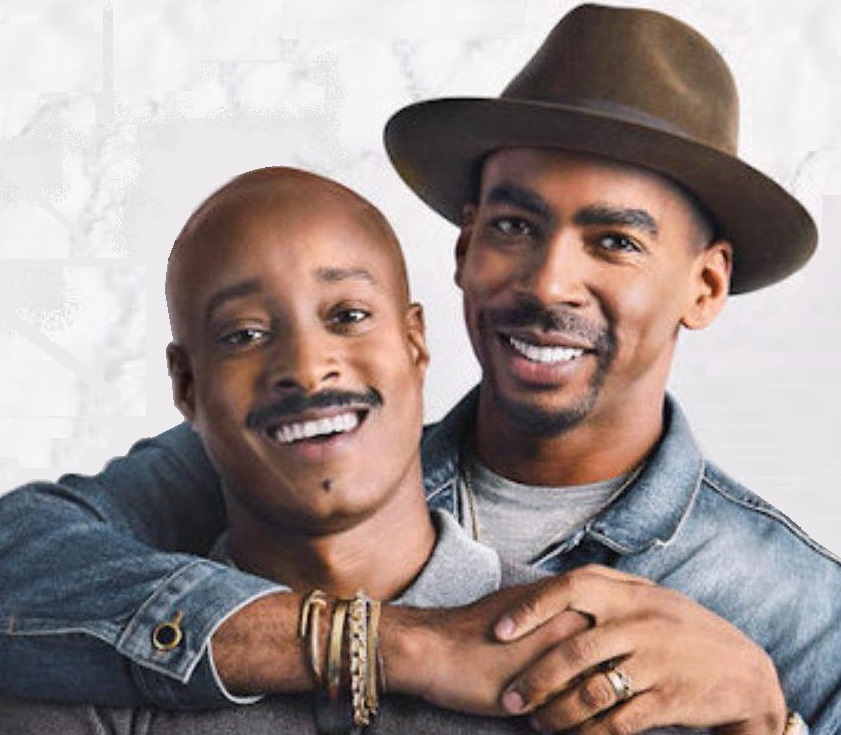

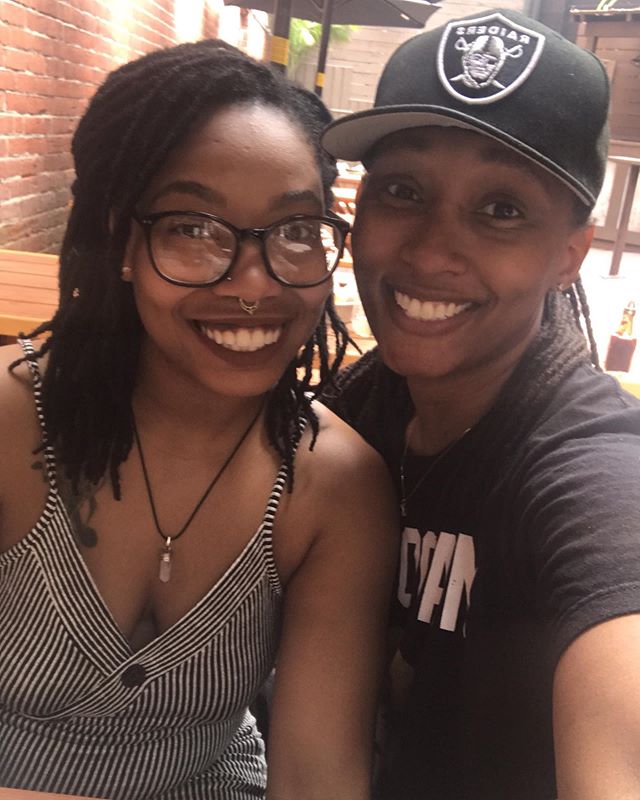
Asexual Relationships & Romance
Video Talk: Aesthetic Attraction
Making Queer Friends as an Introvert
Leisha Hailey and Kate Moennig's New Book
is an Ode to Queer Friendship
Greek Lesson: What is Platonic Love?
Video: Different Types of Attraction
Video Ramblings: Queer Platonic Relationships
Queer Friendships: Platonic and Romantic
Video Advice: Signs You Have Found Your Soulmate
To Plato, the original meaning of platonic love had
nothing to do with carnal lusts or sexual attraction.
Plato defined platonic love as the kind of love that
motivates us to become better versions of ourselves,
inspiring us to pursue greater goals, and bringing us
closer to enlightenment or the divine.
As a rule, this term is used to describe a relationship
between two people who choose not to have any intimate
contact though theoretically, they could possibly have a
romantic affair. These people may be good friends, they
may belong to different social groups, there may be an
age gap between them, but they just cherish each other
without any bodily contact. Such a platonic friendship
unfolds people's best traits. They are ‘just good
friends’ who might be even closer to each other than
lovers or blood relatives.
These days
the term “platonic relationship” is often used to
describe a “friends only” relationship. The kind of
relationship in which you would do anything for the
person, regardless of gender, but have no interest in
being with them sexually or romantically. But it can
sometimes be difficult to tell if a relationship is a
platonic one, especially if one partner is slightly
attracted to the other. The lines often get blurred, and
clearing up the status of a relationship (platonic,
romantic, sexual) is crucial towards defining a healthy
relationship.
And it is necessary to remember that pure bodiless
emotions may once undergo a profound transition. At this
stage, one partner may start to want more than just
being good friends. It is absolutely normal when
spiritual phases grow into physical or vice versa, under
the condition that both partners feel comfortable about
this transition and welcome the changes.

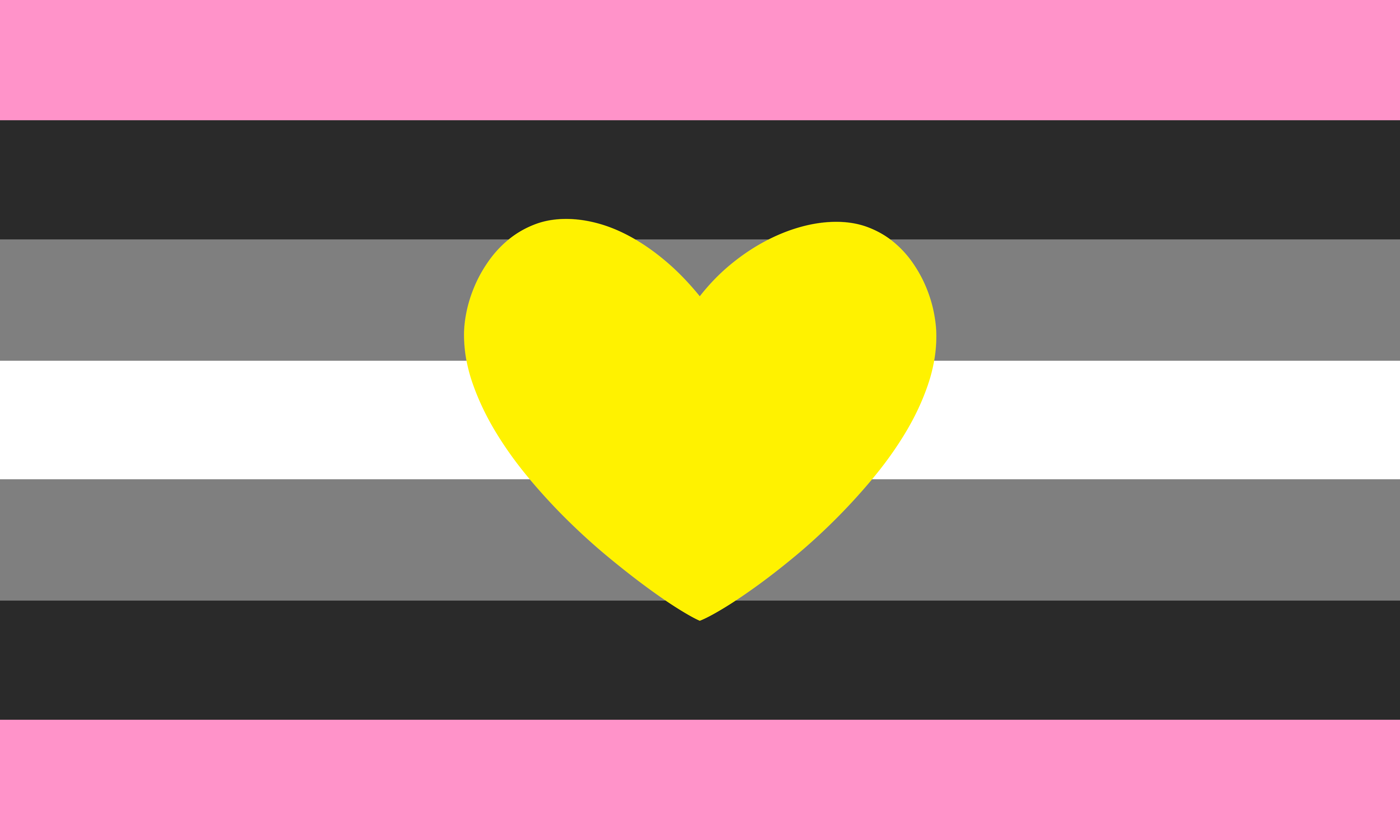

Asexual Relationships & Romance
Video Talk: Aesthetic Attraction
Greek Lesson: What is Platonic Love?
Info: LGBTQ Dating
Video: Different Types of Attraction
Video Ramblings: Queer Platonic Relationships
People Who Don't Want to Fall in Love
Characteristics of Platonic Love
What is Friendship?
Odyssey: Types of Attraction
Nurturing
Non-Romantic Bonds
Exploring Platonic Relationships in the LGBTQ Community
In discussions surrounding LGBTQ experiences, romantic
relationships often take center stage, but the
significance of non-romantic, platonic relationships
within the community deserves equal attention. These
bonds play a crucial role in providing support,
understanding, and a sense of belonging, offering
avenues for personal growth and resilience. This essay
aims to explore the dynamics, importance, and challenges
of non-romantic connections within the LGBTQ community.
Understanding Platonic Relationships
Platonic relationships encompass connections devoid of
romantic or sexual involvement. These relationships are
characterized by deep emotional bonds, mutual respect,
and companionship. Within the LGBTQ community, platonic
relationships manifest in various forms, including
friendships, chosen families, mentorships, and support
networks.
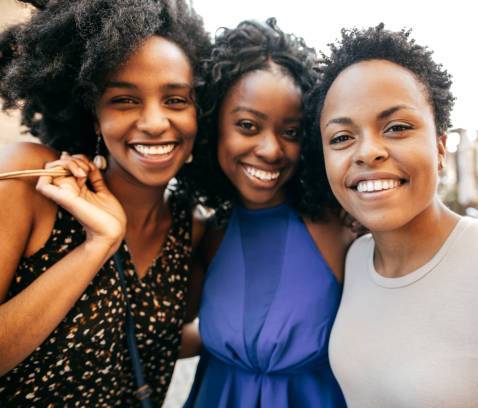
Queer Friendships: Platonic and Romantic
Leisha Hailey and Kate Moennig's New Book
is an Ode to Queer Friendship
Info: Aromantic Orientation
Video Advice: Signs You Have Found Your Soulmate
Making Queer Friends as an
Introvert
You Need Help: I’m In Love With My
Straight Best Friend
Can You Still Be Friends With Your Ex?
Platonic Relationship Described
How to Make Queer Friends as an
Introvert
Theories on the Difficulty of Gay
Friendships
SNL: Straight Male Friend
Importance of Platonic Relationships
Emotional Support: Platonic relationships serve as
pillars of emotional support, offering understanding,
empathy, and validation to individuals navigating their
identities and experiences within the LGBTQ spectrum.
Sense of
Belonging: For many LGBTQ individuals, finding
acceptance and belonging can be challenging. Platonic
relationships provide safe spaces where individuals can
express themselves authentically without fear of
judgment or discrimination.
Identity
Exploration: Non-romantic connections allow individuals
to explore different facets of their identity in a
supportive environment, fostering self-discovery and
personal growth.
Resilience
and Coping: During times of adversity, such as
discrimination or rejection, platonic relationships
offer resilience and coping mechanisms. Friends and
chosen family members provide strength and solidarity,
helping individuals navigate through difficult
circumstances.
Celebration of Diversity: Within the LGBTQ community,
platonic relationships celebrate diversity and
intersectionality, fostering inclusivity and
understanding among individuals with varied backgrounds
and experiences.


You Need Help: I’m In Love With My
Straight Best Friend
Can You Still Be Friends With Your Ex?
Platonic Relationship Described
People Who Don't Want to Fall in Love
Characteristics of Platonic Love
What is Friendship?
Odyssey: Types of Attraction
Challenges and Considerations
While
platonic relationships within the LGBTQ community offer
numerous benefits, they also face unique challenges:
Boundaries: Establishing and maintaining boundaries can
be complex, especially when navigating close friendships
or chosen family dynamics. Clear communication and
mutual respect are essential for preserving the
integrity of these relationships.
Intersectionality: Intersectional identities within the
LGBTQ community can impact the dynamics of platonic
relationships. Issues such as race, class, and gender
identity may influence experiences of privilege, power
dynamics, and access to resources within these
connections.
External
Pressures: Societal stigma and discrimination against
LGBTQ individuals can strain platonic relationships.
Fear of judgment or backlash may lead some individuals
to conceal or downplay their connections, affecting the
authenticity and depth of these bonds.
Evolution
and Change: Like all relationships, platonic connections
evolve over time. Shifts in circumstances, geographical
distance, or personal growth may impact the dynamics of
friendships and chosen families within the LGBTQ
community.
Non-romantic, platonic relationships play a vital role
in the lives of LGBTQ individuals, offering support,
understanding, and a sense of belonging. These
connections serve as crucial avenues for emotional
support, identity exploration, and resilience amidst
societal challenges. By acknowledging the significance
of platonic relationships and addressing the unique
challenges they face, we can foster a more inclusive and
supportive community for all members of the LGBTQ
spectrum.


Leisha Hailey and Kate Moennig's New Book
is an Ode to Queer Friendship
Video Advice: Signs You Have Found Your Soulmate
What Is a Platonic Relationship
How to Make Queer Friends as an Introvert
Types of Female Friendships
Video Talk: Can Queer and Straight People Be Friends?
Jen and Judy: Someone to Stay
Asexuality, Attraction, and Romantic Orientation
Video: When You and Your BFF are Practically Married
Info: Aromantic Orientation
Ian McKellen and Patrick Stewart’s Friendship
Bromance
between two BFFs
From
onscreen foes to real-life friends, Patrick Stewart and
Ian McKellen’s friendship is one for the books.
The British actors, who have known each other for more
than 40 years and became close two decades ago when they
costarred in 2000’s X-Men. In the film, Stewart plays
Professor Charles Xavier, or Professor X, while McKellen
plays his adversary, Erik Lehnsherr, a.k.a. Magneto. In
between takes, however, the two became fast friends.
"On those kind of movies, you spend more time sitting in
your trailer than you do in front of the camera,” the
Star Trek star revealed. “So, Ian and I hung out
together, drinking tea — and maybe in the afternoon,
something a little stronger — and we got to know one
another."
 
Ian McKellen and Patrick Stewart’s Friendship
How Patrick Stewart and McKellen Bonded and Became Best
Friends
Ian McKellen And Patrick Stewart's Bromance
Patrick Stewart and His BFF Ian McKellen
Ian McKellen and Patrick Stewart Are the Best Best
Friends Ever
Patrick Stewart and Ian McKellen’s Sweetest Friendship
Despite meeting years prior, while working on Tom
Stoppard’s Every Good Boy Deserves Favour at the Royal
Shakespeare Company in 1977, the pair didn’t cement
their bond until X-Men. Since playing rivals in the
sci-fi film, the friends have reprised their roles in
numerous movies within the franchise: X2, X-Men: The
Last Stand, The Wolverine and X-Men: Days of Future
Past.
Professionally, the men have joined forces on stage as
well. The longtime friends starred in the Two Plays in
Rep, a combination of Harold Pinter’s No Man’s Land and
Samuel Beckett’s Waiting for Gadot, beginning in 2013.
They promoted the dual shows’ premiere in New York City
by adventuring all over town and documenting it on
social media.



In between their joint ventures, Stewart has continued
to portray Jean-Luc Picard in the Star Trek franchise,
his latest being in 2020’s Star Trek: Picard series.
McKellen, on the other hand, has been seen in the Lord
of the Rings and The Hobbit films as Gandalf and 2017’s
Beauty and the Beast.
The actors, who were both knighted by Queen Elizabeth
II, have also been a big part of each other’s personal
lives. When Stewart married Sunny Ozell in 2013,
McKellen was the officiant.
Celebrities Who Are Best Friends
Fine Line Between Romantic and Platonic Love
Jen and Judy: Hold
Me While You Wait
Video Talk: Aesthetic Attraction
Kai and Mari: Queerplatonic Relationship
Jen and Judy: A Thousand Years
Making Queer Friends as an Introvert
What is a Quasiplatonic aka Queerplatonic
Relationship?
Video Chat: Types of Attraction
Psychology Today: Gay Men and Straight Men as Friends
Types of Attraction
Romantic
Attraction – Affinity to engage in relational,
interactive, affectional, intimate behavior (flirting,
dating, marriage) with another person.
Sexual Attraction – Affinity (desire, interest) to engage in physical
(carnal) intimate contact or behavior
(kissing, touching, intercourse) with another person.
Sensual Attraction - Desire to interact with others in a
tactile, non-sexual way, such as through hugging or
cuddling.
Emotional/Spiritual Attraction – Affinity to engage in
empathetic (interdependent) intimate behavior (sharing, confiding, trusting,
loving) with another person.
Desire to get to
know someone, often as a result of their personality
instead of their physicality. This type of attraction is
present in most relationships from platonic friendships
to romantic and sexual relationships.
Aesthetic Attraction - When someone appreciates the
appearance or beauty of another persons, disconnected
from sexual or romantic attraction.
Intellectual Attraction -
Desire to engage with another in an intellectual manner,
such as engaging in conversation with them, “picking
their brain,” and it has more to do with what or how a
person thinks instead of the person themselves.



AVEN: Romantic Orientation
Akoiromantic Defined
How to Make Queer Friends as an Introvert
Theories on the Difficulty of Gay
Friendships
People Who Don't Want to Fall in Love
Jen and Judy:
You Mean the World to Me
Characteristics of Platonic Love
Info: LGBTQ Dating
What is a Quasiplatonic aka Queerplatonic
Relationship?
Video Talk: Being Asexual and Biromantic
Asexuality, Attraction, and Romantic Orientation
Info: Aromantic Orientation
Patrick Stewart and Ian McKellen are Inseparable Best Pals
Alternate Celebrations
Palentine's Day...
Galentine's Day...
Malentine's Day...
Valentine's Day, observed
annually on February 14, has a
long-honored tradition of
affirming and celebrating
romantic love. One of the most
popular holidays on our
calendar, it gives couples, both
straight and queer, the
opportunity to express their
love, affection, and devotion to
each other. Whether you are in a
committed opposite-sex
relationship or same-sex
relationship, Valentine's Day is
the day for you and your partner
to commemorate your monogamous
devotion and loyalty to each
other.
There are those who are not in a
traditional romantic
relationship, but, instead enjoy
being single and value the
non-romantic love and platonic
relationships they have with
their friends. These
connections, while not romantic
or sexual, are none the less
deep and meaningful. For those
enjoying these kinds of loving
relationships, there are
alternatives to Valentine's Day
. . .


Palentine's Day is a day
to celebrate platonic love and
friendship. It is celebrated on
February 13. It honors aromantic
and asexual relationships and
gives friends the opportunity to
celebrate their important
relationship with each other.
Galentine's Day is a day
to celebrate female friendships
and platonic love. It is
celebrated on February 13.
Activities are often all-female,
but can include friends of any
gender. The day is a reminder
for women to support and uplift
each other.
Malentine's Day is a day
to celebrate male friendships
and platonic love. It is
celebrated on February 12. It is
a day for men to meet up and
celebrate their amazing
friendship, but can include
friends of any gender. It is a
the male equivalent of
Galentine’s Day.
Additionally,
Aromantic
Spectrum Awareness Week,
which is observed on the first
full week after February 14,
seeks to commorate and validate
persons in this category.
Relationships|Couples
Marriage Equality
Dating
and Courtship
Aromantic Orientation
Platonic
Relationships
Relationships,
Squishes, and Zucchini
Being in a relationship does not necessarily imply that
there is romance. The asexual community (including
aromantics) separates sexual and romantic orientation.
There is such a thing as non-romantic loving
relationships. Most people would agree that family is
kind of non-romantic loving relationship, especially
from the mother to the children, but friendship and
companionship may be more important than romantic
partnership even for some romantic people.
Not only is love not exclusive of romance, but even
infatuation. For the latter, the asexual community
coined the term “squish” to refer to an asexual
aromantic crush. And they recently coined the term
“zucchini” to refer to an aromantic platonic
relationship.
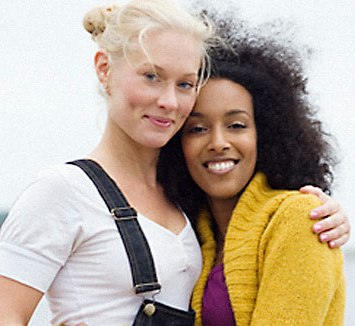


Video Advice: Signs You Have Found Your Soulmate
Celebrities Who Are Best Friends
Info: Sexual Identity
Love Panky: Different Kinds of Romantic Orientations
Jen and Judy: Arms Around
Me
Reciprosexuality and Reciprioromanticism
Aromantic Poem
Situationship: Pros and Cons
Video Chat: Types of Attraction
Asexual Visibility
and Education Network
SNL: Straight Male Friend
Making Queer Friends as an Introvert
This is What Sex Feels Like for an Asexual Person
Queerplatonic
Relationships
A queerplatonic relationship (QPR) is one which is more
intense and intimate than what most people regard as a
friendship, not fitting the traditional romantic couple
model. It is characterized by a strong bond, love, and
emotional commitment, yet is not perceived by those
involved as romantic or more than a friendship. Being a
so-called platonic relationship, it does not comprehend
sexuality/eroticism or exclusivity nor it is this what
the relationship is organized around. It is defined by
the intensity and significance of the emotional
connection.
The people involved do not have to identify as queer. It
is a type of relationship experienced by and available
to anybody regardless of their sexual orientation,
romantic orientation, or monogamy. The people involved
in a queerplatonic relationship may consider themselves
partners, life-partners, a couple, a triad, or any other
term that implies the relationship is meaningful,
committed and intimate. Because queerplatonic
relationships are not based on exclusivity, a
participant of the relationship may have multiple QPPs
and exclusive relationships (romantic or sexual) with a
third party not involved in the QPR.

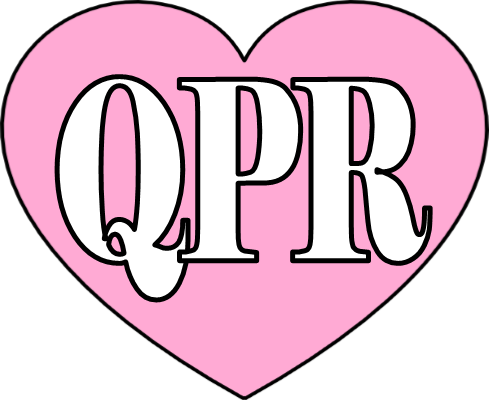

Queerplatonic partners (QPs or QPPs) are sometimes
referred to as "zucchini.” This was originally a joke
within the aromantic asexual community, underscoring the
lack of words in mainstream relationship discourse to
signify meaningful relationships that do not follow the
standard and expected sexual/romantic norms, and
frustration with the erasure of other kinds of intimacy,
which were perceived as equally valuable to the
sexual/romantic model.
Due to the controversy surrounding the reclamation of
"queer", an alternative to queerplatonic is "quasiplatonic"
or "quirkyplatonic".
In some situations the people involved can show physical
affection such as cheek kisses, pecks on the lips,
holding hands, sitting on each other's lap, seeing each
other naked, cuddling and literally sleeping together.
To QPPs, these activities are not necessarily romantic
nor sexual/erotic.
Fine Line Between Romantic and Platonic Love
Jen and Judy: Hold Me While You Wait
Odyssey: Types of Attraction
What is a Quasiplatonic aka Queerplatonic
Relationship?
Trudy: To All the Gay Men I've Loved
Before
Info: LGBTQ Dating
Video Ramblings: Being Queer Platonic
SNL: Straight Male Friend
The Romance of Close
Friendships
You Need Help: I’m In Love With My
Straight Best Friend
Asexual Relationships & Romance
Can You Still Be Friends With Your Ex?
Info: Asexuality
Shades of Grayro: Romantic Orientations
What is Lithromantic?

Friendships:
Platonic, Familial, Cordial
Outside of
sexual relationships, friendships are very important.
Depending on the friend, the physical connection would
often play a role as well. From hand holding to
cuddling, in many ways these queer friendships fulfill a
need for physical touch. Beyond dating, friendships and
a variety of platonic relationships often provide a
meaningful source of deep love and happiness.
Many straight women often have close relationships with
other women. But, the component of queer identity makes
a big difference here. The undercurrent of attraction
and the possibility of relationships makes connections
between queer women more nuanced at times. Sometimes
these undefined relationships can be maddening and lead
to jealousy or frustration. Questions like, “What are
we?” and, “What does this mean?” can be nagging. But, on the
other hand, these relationships can also take pressure
off and allow for intimacy in open-ended, freeing ways.



Asexuality, Attraction, and Romantic Orientation
Debunking Asexual and
Aromantic Myths
Theories on the
Difficulty of Gay Friendships
Asexual Relationships and Romance
How to Make Queer Friends as an Introvert
Huffpost: Things Real
Friends Do
Info: Aromantic Orientation
Love Panky: Different Kinds of Romantic Orientations
Situationship: Pros and Cons
Celebrities Who Are Best Friends
In general, we live in a culture that values the
romantic/sexual relationship above all others. This is
easy to see. Most popular songs and movies center the
romantic relationship as the most important one in a
person’s life. The monogamous romantic bond is shown as
a shining example of connection and what we all should
strive for in life. All other relationships, be they
platonic, familial, or something more nebulous, are made
to seem secondary to traditional romance. A heterosexual
pairing is held up as the golden ideal, but these same
ideas about pairing off and romance superseding all else
can sometimes translate to the queer community, too.
So, how do we label these close friendships? In an
article, writer Maria Popova addresses romance and
friendship and the history of the ‘neverland between the
two and the inevitable discombobulation of our neatly
organized relationship structures that happens when
romantic love and friendship converge”. Relationships
are never as simple or cut and dried as a definition.
These convergences can cause confusion but also lead to
joy and beauty.



Levels of Friendship
Video Ramblings: Being Queer Platonic
Situationship: Pros and Cons
Kai and Mari: Queerplatonic Relationship
Types of Female Friendships
What is a Quasiplatonic aka Queerplatonic
Relationship?
Making Queer Friends as an Introvert
Video Talk: Can Queer and Straight People Be Friends?
The term "queerplatonic"
is useful here. This phrase was coined by asexual and
aromantic people, and it’s often used in the asexual and
aromantic communities. It’s defined by AVEN as, “a
relationship that is not romantic but involves a close
emotional connection (platonic) beyond what most people
consider friendship. The commitment level in a
queerplatonic relationship is often considered to be
similar to that of a romantic relationship.” This
definition can help us gain insight into ourselves and
our relationships, and allow people to broaden their
perceptions of relationships and love.
Understanding the importance of these types of
relationships can help us realize something about
friendship. Friendships of all kinds (platonic,
romantic, sexual and otherwise) can be life-saving, even
when their parameters aren’t so clear-cut. We can learn
to embrace the ambiguity and enjoy the queer friendships
that provide us with a constant source of intimacy in
our lives.
[Source: Amanda Steele, Tempest, July 2018]
This is What Sex Feels Like for an Asexual Person
Trudy: To All the Gay Men I've Loved
Before
Types of Best Friends
The Romance of Close
Friendships
What is a Quasiplatonic aka Queerplatonic
Relationship?
SNL: Straight Male Friend
Video: Ace and Aro People in Relationships
BFF Test: Antoni Porowski and Jonathan Van Ness
Info: LGBTQ Dating

What is Platonic
Love?
Love is
multi-faceted and comes in many forms: parental, filial,
romantic, platonic. But what do we mean when we say
“platonic friends” or talk about “platonic love”? What
does a modern, healthy platonic relationship look like,
and how do we keep it that way?
Platonic love takes its name from famous Classical Greek
philosopher, Plato (428–347 BCE). Initially, Plato’s
dialogue was directed toward same-sex relationships,
sexual, and otherwise, but by the Renaissance, platonic
love had come to encompass the non-sexual, heterosexual
relationships we know today. Originally, Platonic love
was love that was not vulgar, meaning it wasn’t centered
on lust or fulfilling carnal needs. Instead, it was a
love that inspired nobler pursuits, and brought one
closer to the divine. It brought about the best in both
people.



Jen and Judy: Someone to Stay
You Need Help: I’m In Love With My
Straight Best Friend
Asexual Visibility
and Education Network
Video Advice: Signs You Have Found Your Soulmate
Jen and Judy:
You Mean the World to Me
Akoiromantic Defined
Video Chat: Types of Attraction
BFF Test: Antoni Porowski and Jonathan Van Ness
Characteristics of Platonic Love
Clearly,
today this is no longer completely the case. In our
secular world, a platonic relationship has basically
become code for “we’re just friends” (minus the
benefits). In many cases, that person can end up being
someone you’d go to the moon and back for, but just have
no romantic interest in, or attraction to, in a sexual
way.
However, modern notions of platonic companionship are
not completely devoid of its original meaning. Just like
the original idea, platonic love, like romantic love,
can be deep and intense, and form some of life’s best,
and longest friendships.
And like its ancient origins, the expectation of a
platonic relationship today is relatively the same: that
you would treat that person the way you treat a close
friend of the same sex. It is a space where jealousy
doesn’t rear its ugly head, and hidden agendas and
unrequited love are left at the door. It is rooted in
genuine honesty, and the ability to be yourself around
that person without fear of censure, or abandonment.



Can You Still Be Friends With Your Ex?
Patrick Stewart and Ian McKellen are Inseparable Best Pals
Info: Aromantic Orientation
Jen and Judy: What is a Soulmate?
Situationship: Pros and Cons
How to Make Queer Friends as an
Introvert
Aro Q&A: My Experience as an Aromantic
SNL: Straight Male Friend
Celebrities Who Are Best Friends
Queer Friendships: Platonic and Romantic
What is Friendship?
Characteristics Of Platonic Love
A simple way to sum it up would be: be a good friend,
period. However, this isn’t the answer people are
looking for. Especially at a time when relationships,
and power structures, are changing and are in dire need
of boundaries. The following characteristics of platonic
love will help you recognize it, manage your
expectations of it, and keep that relationship happy,
and healthy, and thriving for years to come.
Unfiltered Honesty
There is little need for deceit in a purely platonic
relationship. Unlike in a romantic relationship, there
is no fear that the person will leave you because they
were never with you in the first place.
You aren’t an item, so the stakes aren’t as high. There
isn’t the same caution, or need to check in with the
other person emotionally. You can have a fight, not
speak for a month, then patch things up, and things will
pretty much go back to normal.
Platonic love doesn’t have to spare anyone’s feelings.
There is no need to maintain a facade. In some sense,
this brutal honesty is great. In fact, it is often a
relief. You can get insights and perspectives you
wouldn’t be able to get from your romantic partner.
Psychology Today: Gay Men and Straight Men as Friends
Can You Still Be Friends
With Your Ex?
Jen and Judy: A Thousand Years
Leisha Hailey and Kate Moennig's New Book is an Ode to Queer Friendship
Queer Friendships: Platonic and Romantic
Video Chat: Types of Attraction
Is Sex With Friends a Bad Idea? Here’s What Queer Men
Had to Say
Types of Best Friends
We're Not Gay: We're Besties
Characteristics of Platonic Love
Patrick Stewart Recalls How He and Ian
McKellen Became Inseparable Best Pals
Advantages of Being Just Good Friends
Jen and Judy: What is a Soulmate?
Asexuality, Attraction, and Romantic Orientation
Huffpost: Things Real
Friends Do



You can
ask the unaskable questions, and not have to worry too
much about the status of your relationship. You can talk
openly about your dating troubles, and share your
personal gaffes without worrying about how it makes you
look. Platonic love can tell it like it is, and can take
the lumps a romantic relationship cannot because it’s
not as complicated when you’re not busy trying to keep
up appearances and impress someone.
You aren’t putting them first, in the way you would if
you were romantically involved. This doesn’t mean that
you don’t consider other people’s feelings outside of
your own or your romantic partner’s, but there is a
different level of consideration we go to when we have a
romantic end game in mind.
A romantic relationship is less like a rock, and more
like a flower. It has to be carefully cultivated, and
taken care of. It is fragile and liable (like a flower)
to die without the proper attention. This is especially
true once the first flush of love has faded, the
butterflies are gone, and you’ve settled into a
comfortable pattern together. This is when the real work
begins. Platonic love is much less delicate and can
weather these ups and downs.


Psychology Today: Gay Men and Straight Men as Friends
Queer Friendships: Platonic and Romantic
Advantages of Being Just Good Friends
What is Friendship?
Can You Still Be Friends With Your Ex?
Info: LGBTQ Dating
Trudy: To All the Gay Men I've Loved
Before
SNL: Straight Male Friend
Respecting Boundaries
While purely platonic relationships may have a no-holds
barred aspect to them (because we don’t hold our friends
to the same standards as we do our lovers), this doesn’t
mean that there are no boundaries. Platonic
relationships require (especially in the beginning)
strong boundaries. These are not normally discussed or
negotiated the way steps are in romantic relationships,
but they hover in the background nonetheless. As time
passes, you will know how far you can push those
boundaries, and when you have to pull back.
For example, when you travel together – do you share a
room? If you do, will that change if one or both of you
gets involved with someone romantically? Platonic love
requires a lot of trust. This is especially true when
you (or your platonic bestie) are in a romantic
relationship.
You have to take care to build trust to ensure that your
partners understand the nature of your relationship, and
that it doesn’t pose any potential threats. If your
significant other has a platonic BFF, how would that
play out for you? What would be considered OK? What
wouldn’t? Ask yourself these questions, and listen to
those feelings. Your gut is often the best indicator of
what constitutes crossing the line, and what is
acceptable.


Lex and Jonathan: Best Friends' Journey in Queerness
Jen and Judy: Someone to Stay
Fine Line Between Romantic and Platonic Love
What Is a Platonic Relationship
Situationship: Pros and Cons
Video Ramblings: Being Queer Platonic
What It Means to Be Aromantic
The Romance of Close
Friendships
What is Friendship?
Video Advice: Signs You Have Found Your Soulmate
No
Expectations
Although friendship is a give and take partnership, when
it comes to platonic love, you have to be careful not to
expect or demand more of that person than you would of a
regular friendship. Part of what differentiates platonic
from romantic love is expectation. We expect a lot from
our romantic partners because with every person you
date, you’re potentially interviewing them for the role
of life partner, or spouse. If someone wants to spend
their life with you, they need to be of the highest
caliber, and up to scratch.
We are less forgiving of mistakes in romantic
relationships, and in a sense, that’s a good thing; we
need to be picky when it comes to investing that kind of
time in a lifelong companion. Platonic love doesn’t get
held to the same high standard. You’re not sharing a
home, children, pets, bank accounts. You’re close,
(and potentially) lifelong friends.
You get to go home at the end of the night and not worry
about what that person is doing, who they’re with,
whether they paid the electric bill, ate the dinner you
left in the fridge, or hung the laundry to dry. You may
worry about them if they’ve been going through a
difficult time, as naturally good friends do, but you’re
not as invested in their day-to-day meanderings and
external relationships. They simply don’t come first.
If you start to notice that they are coming first, or
that you’re often disappointed by their behavior because
they aren’t living up to your expectations, you may need
to step back and ask yourself: are romantic feelings
creeping in? Are boundaries being crossed? Why am I
demanding this from this person? You may be expecting
too much.
Levels of Friendship
Jen and Judy: Hold Me While You Wait
You Need Help: I’m In Love With My
Straight Best Friend
Types of Female Friendships
Info: Aromantic Orientation
Video: When You and Your BFF are Practically Married
Lonely Dudes: Men Are Having a Friendship Crisis
Asexual Relationships and Romance
Is Sex With Friends a Bad Idea? Here’s What Queer Men
Had to Say
SNL: Straight Male Friend


It’s
Not Complicated
Platonic love will always be a part of the human
condition – we award different values to every person we
meet, and we love each one in a unique way. Recognizing
and respecting those differences will bring us closer to
Plato’s initial ideal of platonic love – one that raises
us up and anchors us throughout life.
While love might be fraught with complexities, two-way
platonic affection is the one place where you can
definitively say: it’s not complicated. Platonic
relationships provide an important piece to how we love,
and are loved, through life. They can provide
fulfilling, lifelong friendships, offer us refreshing
perspectives, and a much needed outlet to let off steam,
and let it all hang out.
These are the people who love us minus the baggage, the
“rock” friends who inspire the best in us, and tell us
what we need to hear when we’ve gone astray. Keep your
relationship honest, respect each other’s boundaries,
and let go of expectations. Remembering these key things
will go a long way to a healthy, and happy relationship.
[Source: Sandra Alvarez, Conscious Rethink, May 2019]
Asexual Relationships and Romance
Levels of Friendship
Jen and Judy: Someone to Stay
Info: LGBTQ Dating
Is Sex With Friends a Bad Idea? Here’s What Queer Men
Had to Say
What It Means to Be Aromantic
Huffpost: Things Real
Friends Do
We're Not Gay: We're Besties
Lex and Jonathan: Best Friends' Journey in Queerness
Video Talk: Aesthetic Attraction
Situationship: Pros and Cons
Can You Still Be Friends With Your Ex?
Reciprosexuality and Reciprioromanticism
Jen and Judy: What is a Soulmate?
You Need Help: I’m In Love With My
Straight Best Friend
Fine Line Between Romantic and Platonic Love

Friendship
Defined
"I'll be
there for you, When the rain starts to pour,
I'll be there for you, Like I've been there before,
I'll be there for you, Because you're there for me too."
-Rembrandts, Friends Theme
Words
connected with friends or friendship include...
relationship, friendly relationship, close relationship,
attachment, mutual attachment, alliance, association,
close association, bond, tie, link, union, amity,
camaraderie, friendliness, comradeship, companionship,
fellowship, fellow feeling, closeness, affinity,
rapport, understanding, harmony, unity, cordial
relations.
BFF is a term you often hear people use to describe a
"best friend forever."
Friendships are based on mutual liking and respect. It
is state of mutual trust and support between two or more
people.
Platonic describes a relationship that is purely
spiritual and not physical. If a guy and a girl hang out
all the time but aren't boyfriend and girlfriend, they'd
describe their friendship as platonic. Platonic love and
platonic friendships are marked by the absence of
physical or sexual desire.
True friendship is when someone knows you better than
yourself and takes a position in your best interests in
a crisis. Friendship goes beyond just sharing time
together, and it is long lasting. Friendship can mean
different things to different people.


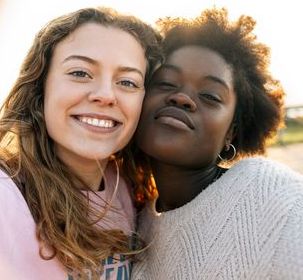
Celebrities Who Are Best Friends
BFF Test: Antoni Porowski and Jonathan Van Ness
The Romance of Close
Friendships
Advantages of Being Just Good Friends
Video Talk: Being Asexual and Biromantic
Patrick Stewart and Ian McKellen are Inseparable Best Pals
Kai and Mari: Queerplatonic Relationship
Video: Ace and Aro People in Relationships
SNL: Straight Male Friend
Jen and Judy: A Thousand Years
Characteristics of Platonic Love
Situationship: Pros and Cons
Types of Best Friends
Aromantic Poem
Friendship
means lending your shoulder for someone to cry on.
Friendship means being comfortable around each other in
silence. Friendship means being able to tell each other
anything and understanding without questions. Friendship
means being honest with each other no matter what the
cost.
A true friend has your back. Someone who is a true
friend stands up for you. When others try to hurt you
emotionally or physically, they do everything they can
to make sure you stay safe. They don't care who is
trying to harm you. They will defend you anytime,
anywhere
The true meaning of friendship is when you consider the
other person's well-being to be as valuable as your own.
If you feel this way about a person, you are truly their
friend. If you consider that another person's good is as
important as your own, you will treat them the way
friends are supposed to treat each other.
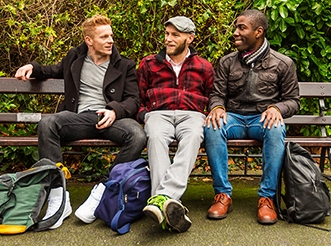

Lex and Jonathan: Best Friends' Journey in Queerness
Jen and Judy: Arms Around
Me
Lonely Dudes: Men Are Having a Friendship Crisis
Types of Best Friends
How to Make
Queer Friends as
an Introvert
What is Lithromantic?
Jen and Judy: Hold Me While You Wait
Characteristics of Platonic Love
Fine Line Between Romantic and Platonic Love
Video: When You and Your BFF are Practically Married
Psychology Today: Gay Men and Straight Men as Friends
Info: Aromantic Orientation
Video: Different Types of Attraction
Types of Friendships
Friendship of Utility - Relationship between you and
someone who is useful to you in some way
Friendship of Pleasure - Relationship between you and
someone whose company you enjoy
Friendship of Interest - Relationship between you and
someone who shares similar interests
Friendship of Respect - Relationship based on
mutual respect and admiration
Types of Friends
Soul Mate
Loyal Best Friend
Fearless
Adventurer
Social
Butterfly
Brutally Honest Confidant
Wise Mentor/Counselor
Secret
Keeper
Zen
Friend/Calming Presence
Care
Giver/Protector
Cheerleader/Supporter
Dependent/Clingy Friend
Mother
Figure/Father Figure
Polar
Opposite
Friendly Neighbor
Work Pal/Colleague
Friend
With Benefits
Asexual Relationships and Romance
What It Means to Be Aromantic
Situationship: Pros and Cons
Celebrities Who Are Best Friends
Trudy: To All the Gay Men I've Loved
Before
Video Talk: Aesthetic Attraction
Info: Aromantic Orientation
Reciprosexuality and Reciprioromanticism
Levels of Friendship
Jen and Judy: What is a Soulmate?
Video: Different Types of Attraction
Info: LGBTQ Dating
BFF Test: Antoni Porowski and Jonathan Van Ness
Advantages of Being Just Good Friends
Video Talk: Being Asexual and Biromantic

Friends With
Benefits
What is
the definition of a Friends With Benefits (FWB)
relationship? Used
as a euphemism, it is a friend with whom one has sex
without a romantic relationship or commitment.
In practice, people involved in a friends with
benefits relationship clearly enjoy spending time
together and hooking up, but their relationship isn't
romantic and has no strings attached.
Two
popular films in 2011 featured this kind of casual
relationship: Friends With Benefits (Starring
Mila Kunis and Justin Timberlake) and No Strings
Attached (Starring Natalie Portman and Ashton
Kutcher).
According to Wikipedia, Friends with benefits
refers to otherwise platonic friends who engage in a
casual sexual relationship.
The Urban Dictionary describes it this way: Two friends
who trust each other enough to engage in sexual activity
without fear of hurting the other's feelings. It is the
ideal scenario for folk who are not interested in a
serious relationship, or who do not have time for one.
Not a boyfriend or girlfriend. Neither party has to
refrain from dating other people. It is a smart
alternative to random hook-ups.
Example: John and I are friends with benefits. We just
hang out, and have sex. It's easy, now that we've
established the ground rules. If we stopped having sex,
we'd still be friends.
Related terms for Friends With Benefits (FWB) include
Fuck Buddies (FB), Friend Sex, Casual Sex, Bud Sex, and No
Strings Attached (NSA). Generally FWB behavior is
differentiated from One Night Stands, Hooking Up, and
Booty Calls.
Friends With Benefits: What Does It Really Mean?
Rules of Being Friends With Benefits
Maintaining an FWB Relationship
Situationship: Pros and Cons
Is Sex With Friends a Bad Idea? Here’s What Queer Men
Had to Say
Video Explanation: Friends With Benefits
Dating Advice: Truth About Friends With Benefits
Guide to Being Friends With Benefits
FWB: How Can You Tell If It's Not Working?
Can You Still Be Friends With Your Ex?



Healthy
FWB Relationship
The sexual
part of a new connection can be easy to fall into, of
course. But what about the "friends" element? A friend
is typically someone you trust and who trusts you—a
relationship that develops through shared history,
experiences, situations, circumstances, compatibility,
or mutual interests. When you're looking for an FWB
arrangement with someone from the start, you're forcing
a new potential relationship into a box that may not
fit, with a label that may misrepresent it. Since it
takes time to cultivate a friendship, it logically
follows that it should require time and dedication to
find out if one can or should cultivate a friendship
with benefits with someone.
Why? Because the benefit is sex, and any time sex is
involved, it complicates matters, even when both people
try to maintain communication and mutual respect. For an
FWB arrangement to work, you have to know each other.
You have to have a sense of who both of you are with and
to each other. And you have to understand what feelings
the emotional and sexual dynamic evokes in you.
Maintaining an FWB in a healthy way means communicating
about what each person expects and where each is as the
relationship evolves. Whether it feels comfortable and
safe, or problems arise, if there is room to work
through challenges to maintain the friendship, even at
the expense of the benefits, then you are in a
successful connection. There is a mutual investment in
each other's well-being, because you're friends first.
But regardless of how the relationship is labeled, when
you’re sexually involved with someone you already care
deeply for, emotions build, as does trust, intimacy,
connection, and familiarity. And, no matter what one
calls the arrangement, it can still get tricky. Check in
to make sure that your friend is still your friend and
that it's not getting more challenging to maintain your
status, or is in any way becoming off-putting for you or
for them.
[Source:
Dr. Suzanne Lachmann, Psychology Today, Feb 2015]
Friends With Benefits: What Does It Really Mean?
Rules of Being Friends With Benefits
Maintaining an FWB Relationship
Video Explanation: Friends With Benefits
Is Sex With Friends a Bad Idea? Here’s What Queer Men Had
to Say
Situationship: Pros and Cons
Dating Advice: Truth About Friends With Benefits
Guide to Being Friends With Benefits
FWB: How Can You Tell If It's Not Working?
Can You Still Be Friends With Your Ex?
How to Keep Your
Friends-with-Benefits Relationship From Falling Apart



Rules of
Being Friends With Benefits
When you are involved in an FWB relationship, laying
some ground rules can save you a lot of drama. Kicking
off a friends-with-benefits relationship can be a lot of
liberating fun. After all, it's a hookup with no strings
attached between two people who genuinely like and trust
each other. But, of course, that doesn't necessarily
mean it's uncomplicated.
It's hard to prescribe a clear-cut set of rules for
being friends with benefits. Every situation is
different. But there is one thing these relationships
all have in common: a need for some good old-fashioned
communication. It should be an honest transaction
between friends. It’s always a good idea to talk about
what the expectations are, preferably in advance.
There's a lot of frank talk before the fun stuff, but
things can get a little knotty if both parties aren’t on
the same page.
Be clear about what you’re looking for. Whenever you’re
deciding the rules in a FWB relationship, it’s best to
be as transparent as possible, open to compromises, and
never be judgmental or make the conversation one-sided.
Always come from a place of honesty and care. Trying to
keep things casual doesn’t mean that you have to be cool
and just go along with what your partner wants. Speak up
for yourself and advocate for what you want too.


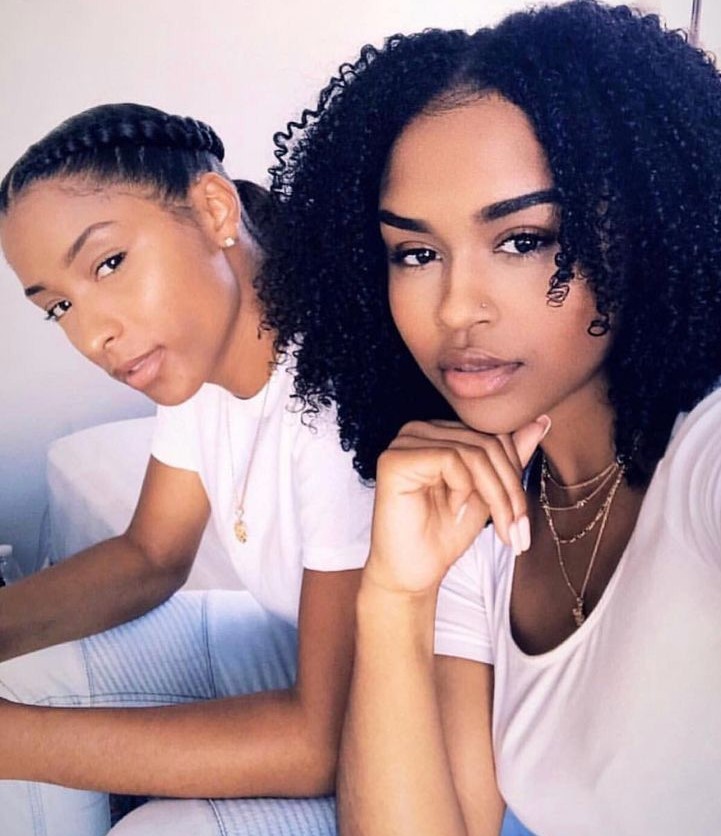
Friends With Benefits: What Does It Really Mean?
Rules of Being Friends With Benefits
Maintaining an FWB Relationship
Video Explanation: Friends With Benefits
Dating Advice: Truth About Friends With Benefits
Guide to Being Friends With Benefits
FWB: How Can You Tell If It's Not Working?
Can You Still Be Friends With Your Ex?
Is Sex With Friends a Bad Idea? Here’s What Queer Men
Had to Say
Don’t expect it to turn into a romantic relationship. Be
sure you’re okay with this being exactly what it is and
nothing more. It is important to be aware of one’s own
true intentions and feelings when entering into an
arrangement like this.
Check in intermittently with how you’re feeling. Let
your friend with benefits know that you want to make
sure you both are on the same page. It's an important
step in making sure you're not hurting each other's
feelings down the line. If at some point you’re enjoying
yourself too much and want to spend more time with your
FWB, then it may be time to reevaluate the situation. If
you’re getting too attached, then it’s time to have a
discussion
And try to get a read on your partner's feelings too. "Hey, just
want to check in with you about how things are going
between us."
These types of conversations can really help prevent
future meltdowns and will also strengthen the
friendship, the trust, and the vulnerability with each
other. Plus, it’ll keep one person from reading into the
relationship more than the other. If emotions evolve for
one or both of you, have the conversation again and
reevaluate your FWB relationship. Since a FWB
relationship can change quickly, you want to make sure
you check in with each other as often as needed to avoid
misunderstandings.
Talk about how you’re going to talk about it. Be sure to
lay out your PR strategy, especially if you’re part of
the same group of friends. Are you keeping it under
wraps? Are you going to be open about it the next time
you’re all out at the bar and the two of you duck off
into the night together? This is not the thing to be
caught off guard about.
Lay down some ground rules. Will either of you be
sleeping over? Are booty calls allowed? Other partners?
These things cross different boundaries for different
FWB situations, so figure it out ahead of time, or don’t
be afraid to gently nip it in the bud early on.
Know where to draw the line. Even if these are the best
orgasms you’ve ever had, this isn’t the same as having a
romantic partner. Communication is about the wheres and
whens of hooking up. You are not building an intimate
relationship, but rather just having fun and enjoying
one another physically.
Acknowledge your own comfort zone. Just because you’re
keeping it casual doesn’t mean you have to be complacent
when it comes to red lines and consent. Know your
limits. The more up front you are about them, the
better. But don’t hesitate to speak up at any point.
Situationship: Pros and Cons
Kai and Mari: Queerplatonic Relationship
Is Sex With Friends a Bad Idea? Here’s What Queer Men
Had to Say
We're Not Gay: We're Besties
Lex and Jonathan: Best Friends' Journey in Queerness
Video: Ace and Aro People in Relationships
Jen and Judy: A Thousand Years
Can You Still Be Friends With Your Ex?
Aromantic Poem

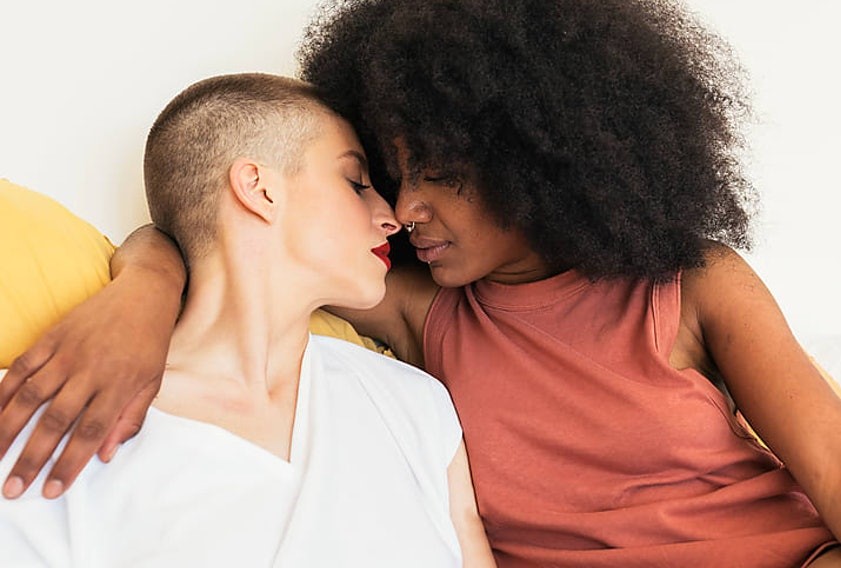

Be sure you’re using protection. Depending on the
expectations you’ve set, either of you might be hooking
up with multiple people. And that’s great! Just be sure
you’re being safe. If it’s a heterosexual relationship,
it’s probably good to let your partner know what kind of
birth control you’re using. For any type of ongoing
nonexclusive hookup, make sure you discuss how often you
each plan to get tested for STDs and STIs. So if you’re
in more than one casual relationship, you definitely
need to let your new FWB know, and, of course, use
condoms every single time.
Talk about how it’s going to end. Assuming you’re not
sexing off into the sunset together, it’s way better to
talk about the end before it happens. What if they meet
someone they want to be exclusive with? What if you do?
And what happens if someone decides they’re just not
into it anymore? It might be hard to visualize the end
of something, but it'll potentially save a lot of
heartache to acknowledge that it might not last forever
early on. Let them know you plan to talk about it if you
meet someone else, and that they should feel free to do
the same. That way, you run less of a risk of losing the
friendship when you stop having sex.
And, of course, make sure it's fun. For all the horrors
of the current sociopolitical situation, one blessing is
that we can have sex with whomever we want, whenever we
want, should the circumstances permit, and that doesn’t
have to be someone we’re in a long-term, committed
relationship with. Sex can be a great way to de-stress,
has more than a few amazing health and beauty benefits,
and is a hell of a lot of fun. And the minute your
friends-with-benefit situation stops being fun? Call it
off. That, after all, is the true beauty of the casual
arrangement.
[Source: By Krystin Arneson, Glamour Magazine, March
2019]
Friends With Benefits: What Does It Really Mean?
Rules of Being Friends With Benefits
Maintaining an FWB Relationship
How to Keep Your Friends-with-Benefits
Relationship From Falling Apart
Video Explanation: Friends With Benefits
Dating Advice: Truth About Friends With Benefits
Guide to Being Friends With Benefits
Is Sex With Friends a Bad Idea? Here’s What Queer Men
Had to Say
FWB: How Can You Tell If It's Not Working?
Can You Still Be Friends With Your Ex?

Lavender
Marriage
"Bearding" with a wedding ring . . .
Lavender marriage is a heterosexual marriage, with one
or both parties being part of the LGBTQ community...
Khloé Kardashian has
appears to want to join the ‘lavender marriage’ trend,
after advocating for the return of the historical
relationship.
The Kardashians star reportedly commented on a video by
content creator AJ Dronkers who suggested that lavender
marriages should make a return. “This is my official
petition to bring back lavender marriage,” Dronkers
began.

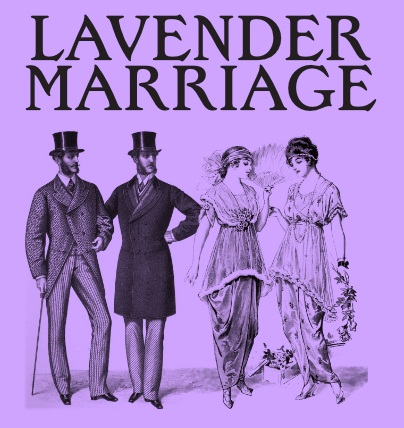

What is a Lavender Marriage?
Lavender Marriage: Exploring Hollywood’s Secret Facade
Lavender Marriage Explained
Broke and Lonely: Lavender Marriage May Be For You
Why Lavender Marriage is Making a Modern Comeback
What Is a Lavender Marriage, And Why Is it Still Popular
in India?
“I’m ready for them to be back,” the content creator
added. “I hate men. Do you hate men? If you’re a
straight woman or a queer woman and you want a gay
husband, I am down. I’ve always thought this is a great
idea for me, I’ve always thought I’d be a great match.
So, let me make my case for why we have an amazing,
amazing life together if you picked me.”
Dronkers explained some of his qualities, including his
love for cooking, interior design, hosting dinner
parties, and being a “wonderful conversationalist”. Not
forgetting about those all-important love languages, he
added that he’ll give his lavender wife “flowers every
week” and has emotional intelligence.
“Let’s do this,” he urged. “Let’s have a baby if it goes
really well. I don’t want to raise a baby with a man, I
want to raise them with you… It’s not just the state of
the world, this is a calling.”


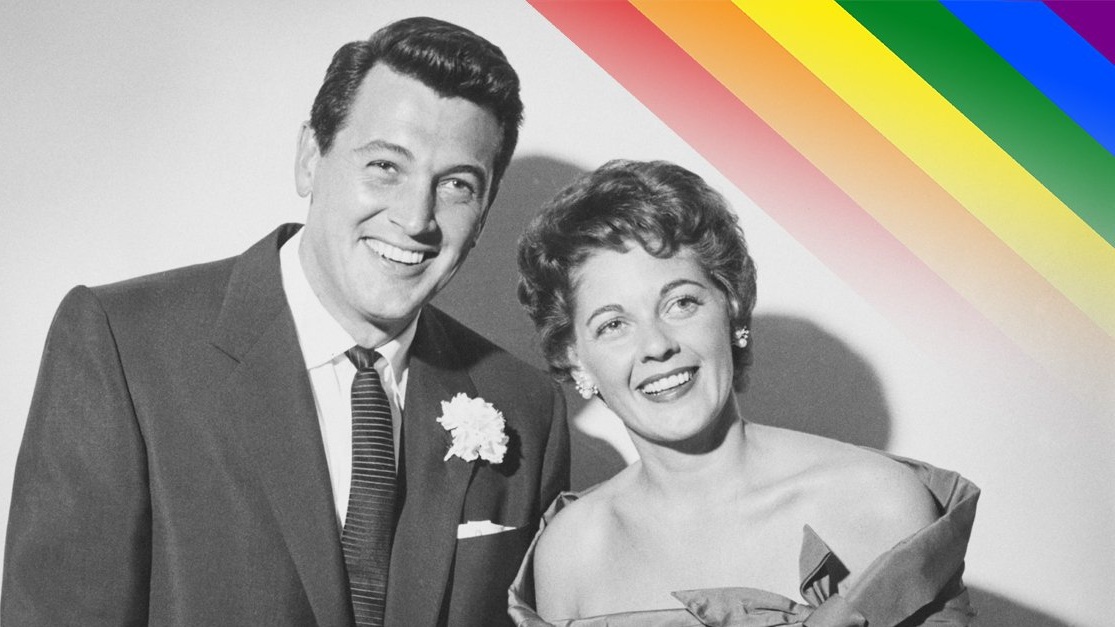
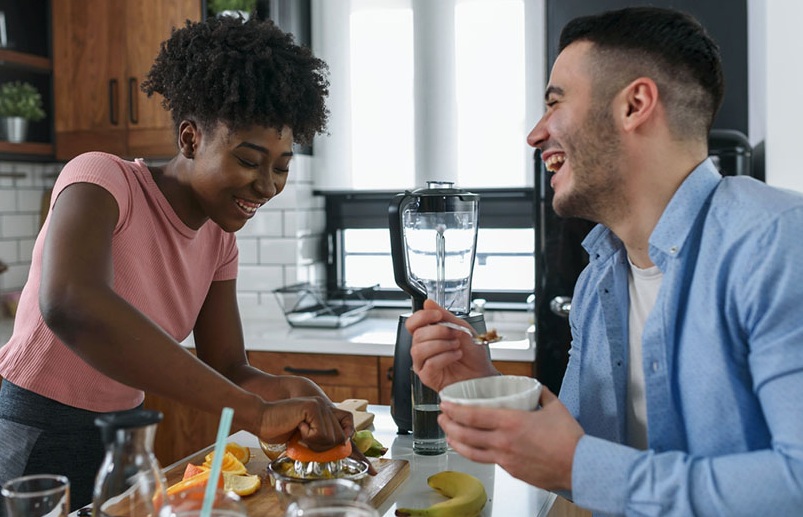
Kardashian shares two children, True and Tatum, with her
ex and NBA player Tristan Thompson. She was previously
married to Lamar Odom. They married in 2009, but she
filed for divorce from him in 2013. However, she
withdrew the filing in 2015 and later ended the
relationship in 2016.
Lavender marriages date back to the early 20th century,
with one or both parties being a part of the LGBTQ
community. Being in a heterosexual marriage, however,
allows the parties to hide their sexuality.
However, as per Business Insider writer Lindsay Dodgson,
such marriages are being reinvited by Gen-Z because they
are “tired of being broke, single, and lonely”. Instead,
a modern-day lavender marriage could “simply be an
agreement between two people to live their lives like a
married couple, without the sex.”
[Source: Pink News, February 2025]
Asexual Relationships and Romance
Levels of Friendship
Jen and Judy: Someone to Stay
Info: LGBTQ Dating
Is Sex With Friends a Bad Idea? Here’s What Queer Men
Had to Say
What It Means to Be Aromantic
Huffpost: Things Real
Friends Do
We're Not Gay: We're Besties
Lex and Jonathan: Best Friends' Journey in Queerness
Video Talk: Aesthetic Attraction
Situationship: Pros and Cons
Can You Still Be Friends With Your Ex?
Reciprosexuality and Reciprioromanticism
Jen and Judy: What is a Soulmate?
You Need Help: I’m In Love With My
Straight Best Friend
Fine Line Between Romantic and Platonic Love

HOME
QUEER CAFE
│ LGBTQ Information Network │ Established 2017 |